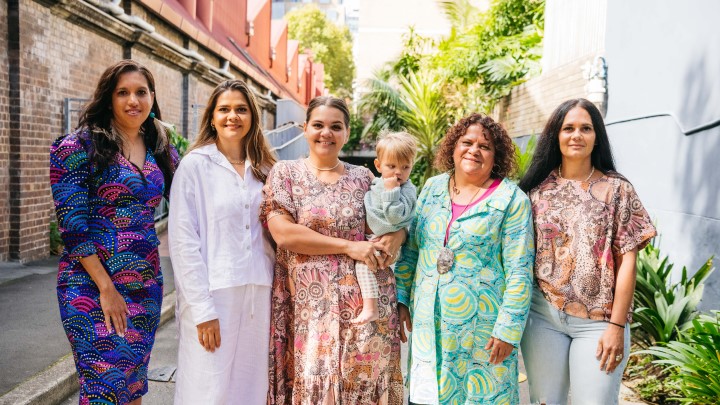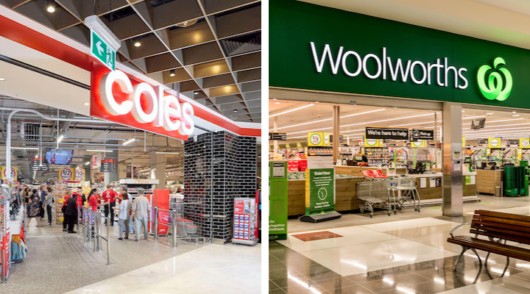Online marketplace The Iconic has deepened its work with First Nations designers, revealing the three brands that will receive support and mentoring through the business’ previously announced incubator program. The initiative, which comes via a partnership with First Nations Fashion + Design (FNFD), will deliver targeted mentorship and training to Gunggandji designer Elverina Johnson of label Pink Fish, Mt. Isa designers Glenda, Jaunita, Dale and Cheryl Mcculloch of label Myrrdah, and Kurand
anda-designer Briana Enoch of label Jarawee.
The designers, who all hail from Queensland, will be given advice and lessons on industry topics such as branding, business plans, design and product development, merchandising, marketing and commercialisation, delivered through industry tours, classroom-style lessons and one-on-one meet ups with mentors.
Mentoring the six women will be: P.E. Nation founder and creative director Pip Edwards; By Johnny founder and creative director Johnny Schembri; and, from Kinga Csilla, creative director Laura Liles and director Tristan Liles.
The designers will also have a number of cultural mentors, such as: National Gallery of Victoria Indigenous art curator Shonae Hobson and the Australian Fashion Council’s Yatu Widders Hunt.
“We’re thrilled to welcome the designers into our first-ever incubator program,” The Iconic’s chief commercial and sustainability officer, Gayle Burchell, said. “As incredibly talented creatives who have already made their mark on the fashion industry, we’re honoured to share our e-commerce, tech and retail experience with them to further support the commercial scaling of their brands.”
A continuing partnership
At an event held earlier this week, FNFD founder and chair Grace Lillian Lee said she felt incredibly excited and honoured by the impact the program is going to have on the designers’ operations.
“The incubator program has been an evolution of our continued partnership with The Iconic. We started this conversation in 2021, which was the first year we showcased at Australian Fashion Week,” Lee said.
“A major component of FNFD growing as a non-profit was when The Iconic sponsored our closing runway show at Afterpay Australian Fashion Week [in 2020], and we are forever grateful for the commitment The Iconic has made to our growing organisation.”
The Iconic’s outgoing CEO, Erica Berchtold, said she also felt honoured to have helped bring the partnership to life.
“It’s been a long time coming, and I’m really happy to see it getting off the ground,” Berchtold said.
“[The Iconic] isn’t the most established business – we’re not the oldest business, nor the one that can write the biggest cheque, but we do believe we can offer meaningful support [from] every aspect of our business.
“We’re really delighted to be here, and I know our team is really looking forward to being a part of this over the next seven months.”
No tokenism
The Iconic’s partnership with FNFD is by no means the only effort within the fashion industry to support Indigenous designers. And with Prime Minister Anthony Albanese’s commitment to the Uluru Statement from the Heart, as well as the upcoming referendum on The Voice to Parliament, First Nations are in the spotlight.
While many brands may be interested in trying to bridge the gap and support First Nations people, it’s important to be aware of creating genuine partnerships that benefit both parties and avoid being tokenistic.
The Iconic’s efforts have been welcomed by the First Nations community, due to its committed collaboration with FNFD and willingness to listen and learn what First Nations designers would actually need from such a program. But not all brands go that route.
In 2021, for example, lingerie brand Berlei was accused of cultural appropriation after it chose a design featuring Aboriginal symbols created by a non-Indigenous artist as one of the winners of a design competition.
Founder of swimwear label Liandra Swim, Yolngu woman Liandra Gaykamangu, spoke at the 2022 Afterpay Australian Fashion Week about how brands tend to get partnerships with Indigenous designers and artists wrong.
“I want to ask you, why [are you doing it]? Is it because it’s going to sell? Because it’s trendy right now?” Gaykamangu said.
“Beyond you making money, [what] are you actually doing for my community, apart from what people see out the front?”







